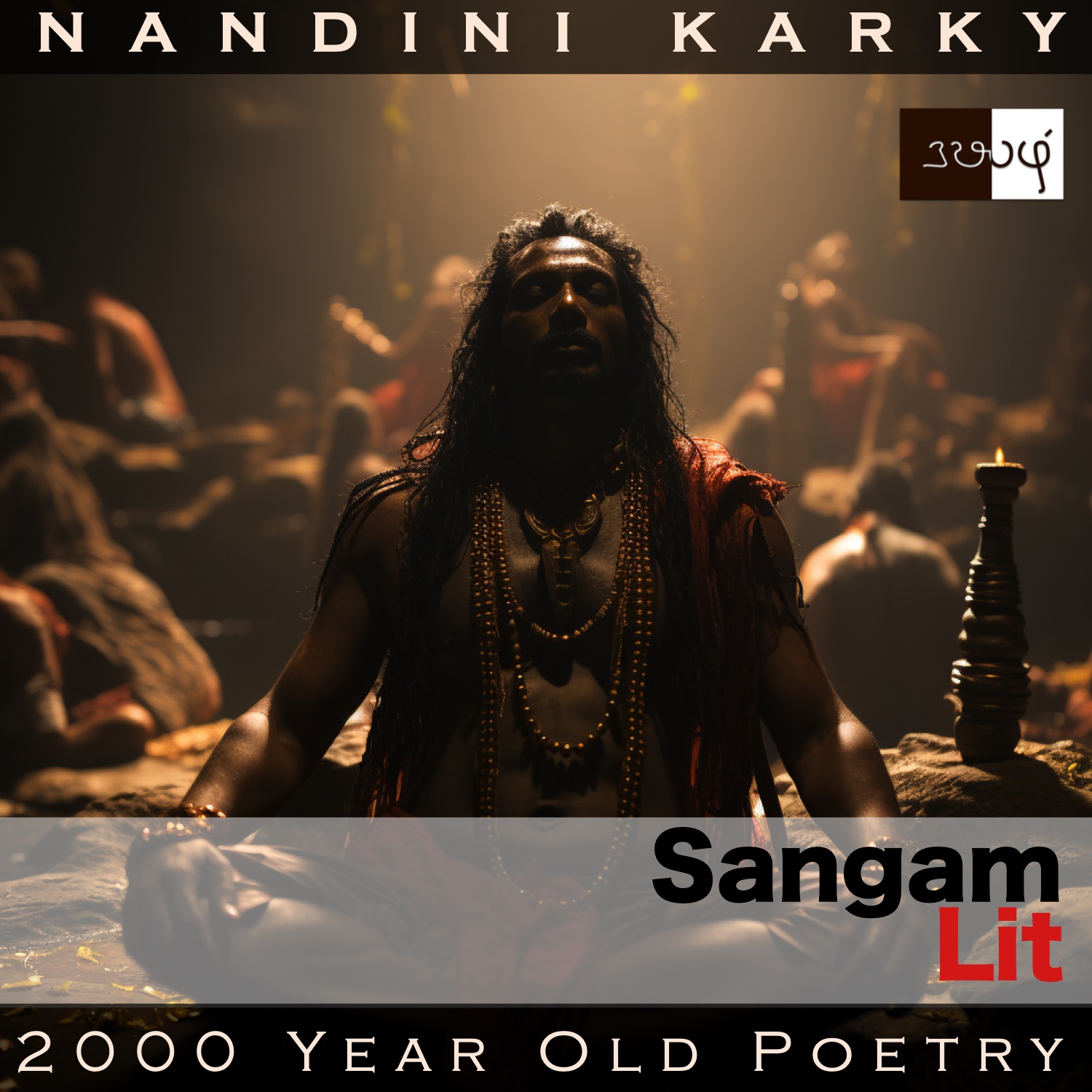Podcast: Play in new window | Download
Subscribe: Apple Podcasts | Spotify | Amazon Music | Android | iHeartRadio | TuneIn | RSS | More
In this episode, we understand a poet’s immense grief, as depicted in Sangam Literary work, Puranaanooru 219, penned about the Chozha King Koperunchozhan by the poet Karuvoor Perunchathukkathu Poothanaakanaar. The verse is situated in the category of ‘Pothuviyal Thinai’ or ‘Common Themes’ and describes the helplessness experienced by this poet.

உள் ஆற்றுக் கவலைப் புள்ளி நீழல்,
முழூஉ வள்ளூரம் உணக்கும் மள்ள!
புலவுதி மாதோ நீயே
பலரால் அத்தை, நின் குறி இருந்தோரே.
A tiny verse echoing a single thought that arises in the mind of this poet as he observes the king’s life languishing, about to part away. The poet’s words can be translated as follows:
“In the spotted shade of the river islet, you are wasting all the flesh in your form, O courageous one! Could it be that you are angry with me, for not joining the many, who sat in your stance?”
Time to explore the nuances in this tiny seed of a verse. The poet informs us where exactly the king is present, as he faces north, and prepares to give up his life so as to avoid the dishonour of fighting his sons. Was there no other choice for this much-adored monarch? Giving up one’s life sounds extreme when seen with our modern eyes. But it was a different time, with a different code of ethics. Returning, the spot where the king sits is a mound in the midst of a river, on an islet. Describing how the king’s flesh seems to be rotting away in the shade of this place, the poet concludes by asking the king whether he was angry that this poet did not join the king in his fast unto death, unlike the many around him.
Obviously, the king is speechless not because he’s sulking with the poet but because his life is parting away and he does not have the energy to talk anymore. But as a projection of his own grief, the poet puts forth this question to the king. In the end, the thought in this verse is an instance of processing grief, something vital for the mental health of any human being, and here, we see how an ancient poet expresses that deep sense of loss, seeing the ruined state of a beloved!




Share your thoughts...